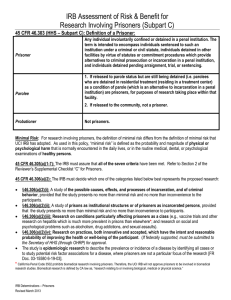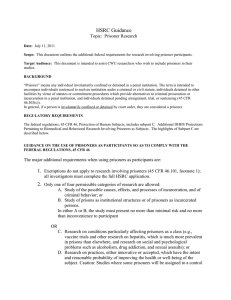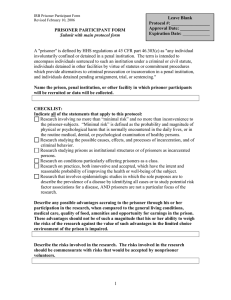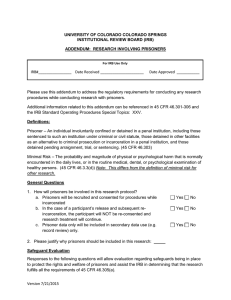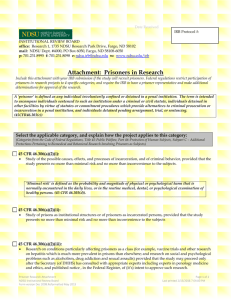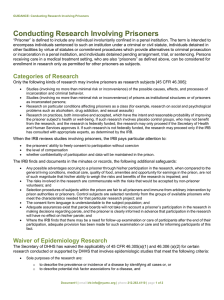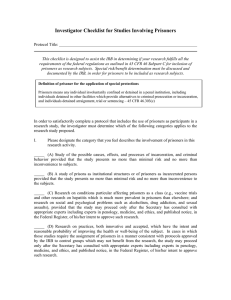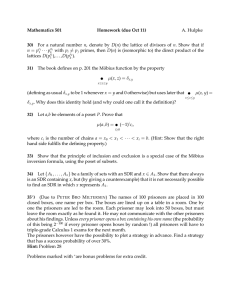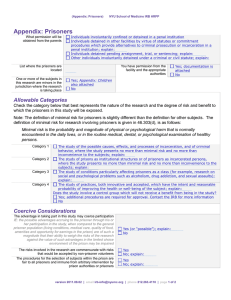Boston College IRB Special Questions for Research Involving Prisoners Checklist
advertisement
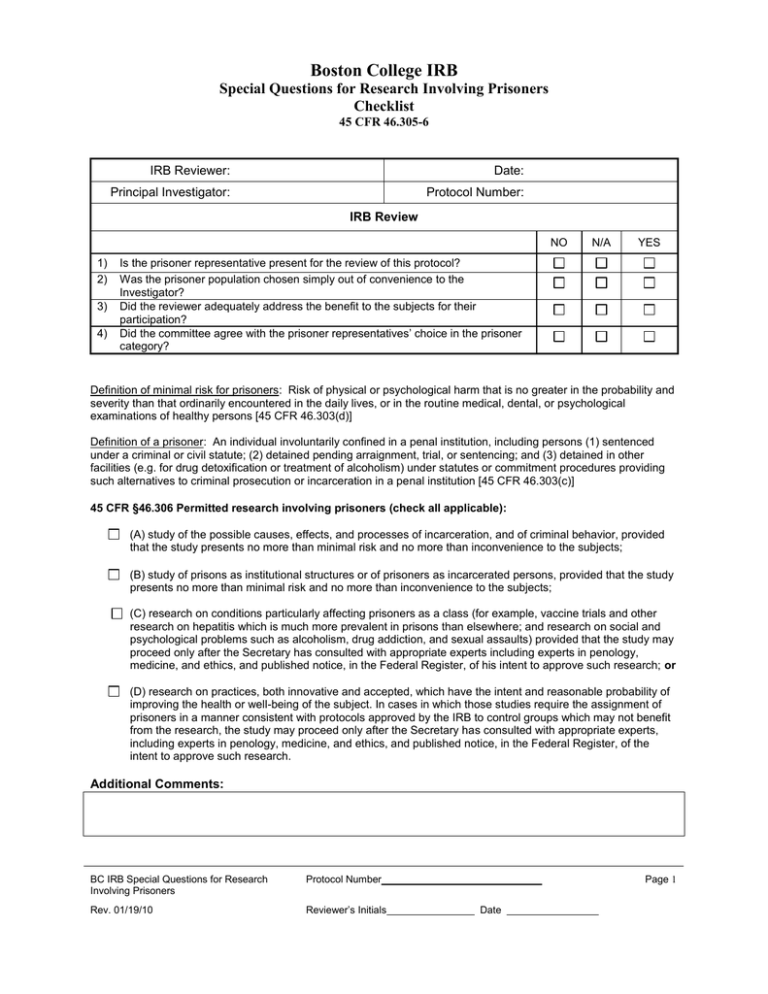
Boston College IRB Special Questions for Research Involving Prisoners Checklist 45 CFR 46.305-6 IRB Reviewer: Date: Principal Investigator: Protocol Number: IRB Review NO 1) 2) 3) 4) N/A YES Is the prisoner representative present for the review of this protocol? Was the prisoner population chosen simply out of convenience to the Investigator? Did the reviewer adequately address the benefit to the subjects for their participation? Did the committee agree with the prisoner representatives’ choice in the prisoner category? Definition of minimal risk for prisoners: Risk of physical or psychological harm that is no greater in the probability and severity than that ordinarily encountered in the daily lives, or in the routine medical, dental, or psychological examinations of healthy persons [45 CFR 46.303(d)] Definition of a prisoner: An individual involuntarily confined in a penal institution, including persons (1) sentenced under a criminal or civil statute; (2) detained pending arraignment, trial, or sentencing; and (3) detained in other facilities (e.g. for drug detoxification or treatment of alcoholism) under statutes or commitment procedures providing such alternatives to criminal prosecution or incarceration in a penal institution [45 CFR 46.303(c)] 45 CFR §46.306 Permitted research involving prisoners (check all applicable): (A) study of the possible causes, effects, and processes of incarceration, and of criminal behavior, provided that the study presents no more than minimal risk and no more than inconvenience to the subjects; (B) study of prisons as institutional structures or of prisoners as incarcerated persons, provided that the study presents no more than minimal risk and no more than inconvenience to the subjects; (C) research on conditions particularly affecting prisoners as a class (for example, vaccine trials and other research on hepatitis which is much more prevalent in prisons than elsewhere; and research on social and psychological problems such as alcoholism, drug addiction, and sexual assaults) provided that the study may proceed only after the Secretary has consulted with appropriate experts including experts in penology, medicine, and ethics, and published notice, in the Federal Register, of his intent to approve such research; or (D) research on practices, both innovative and accepted, which have the intent and reasonable probability of improving the health or well-being of the subject. In cases in which those studies require the assignment of prisoners in a manner consistent with protocols approved by the IRB to control groups which may not benefit from the research, the study may proceed only after the Secretary has consulted with appropriate experts, including experts in penology, medicine, and ethics, and published notice, in the Federal Register, of the intent to approve such research. Additional Comments: BC IRB Special Questions for Research Involving Prisoners Protocol Number Rev. 01/19/10 Reviewer’s Initials Page 1 Date
